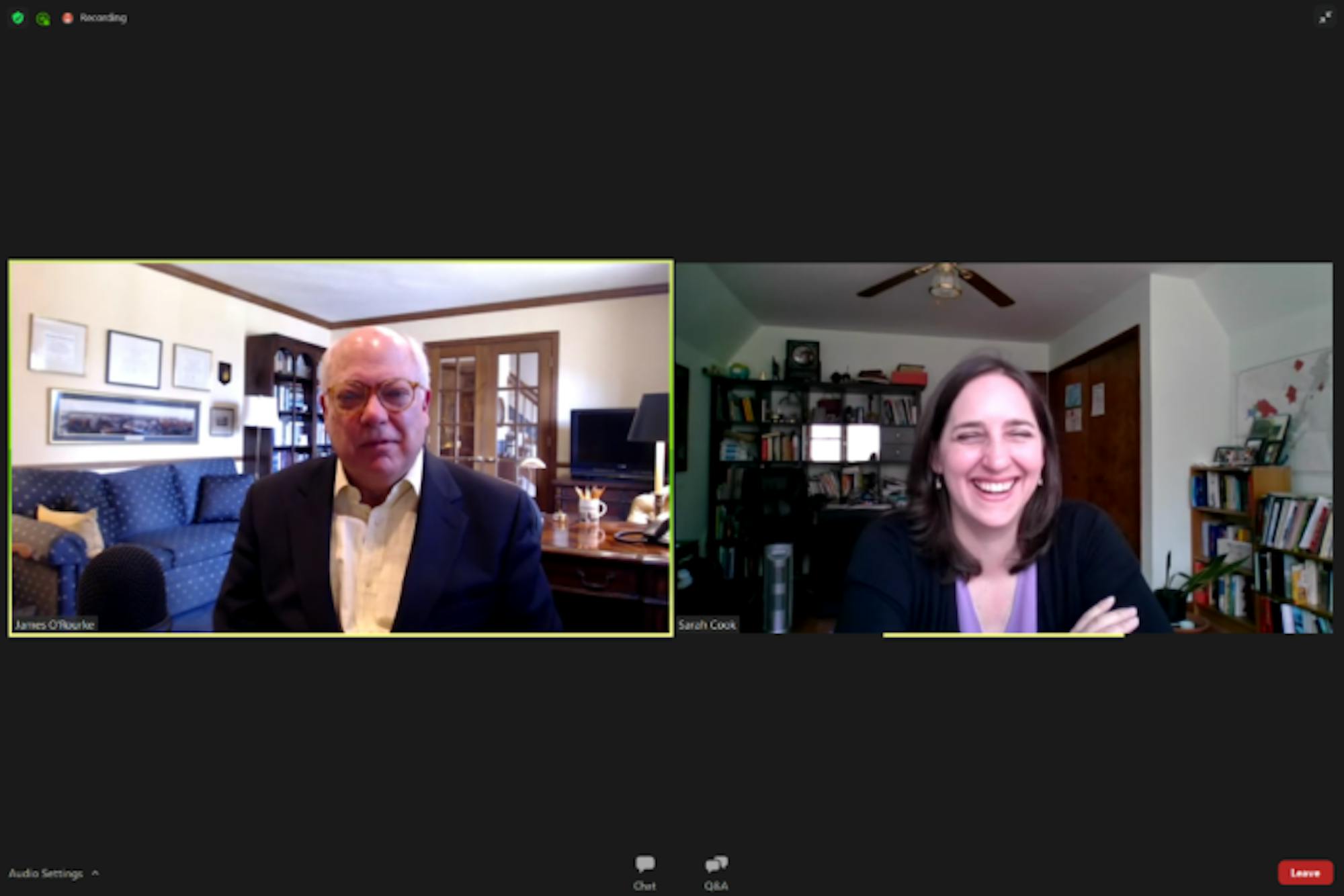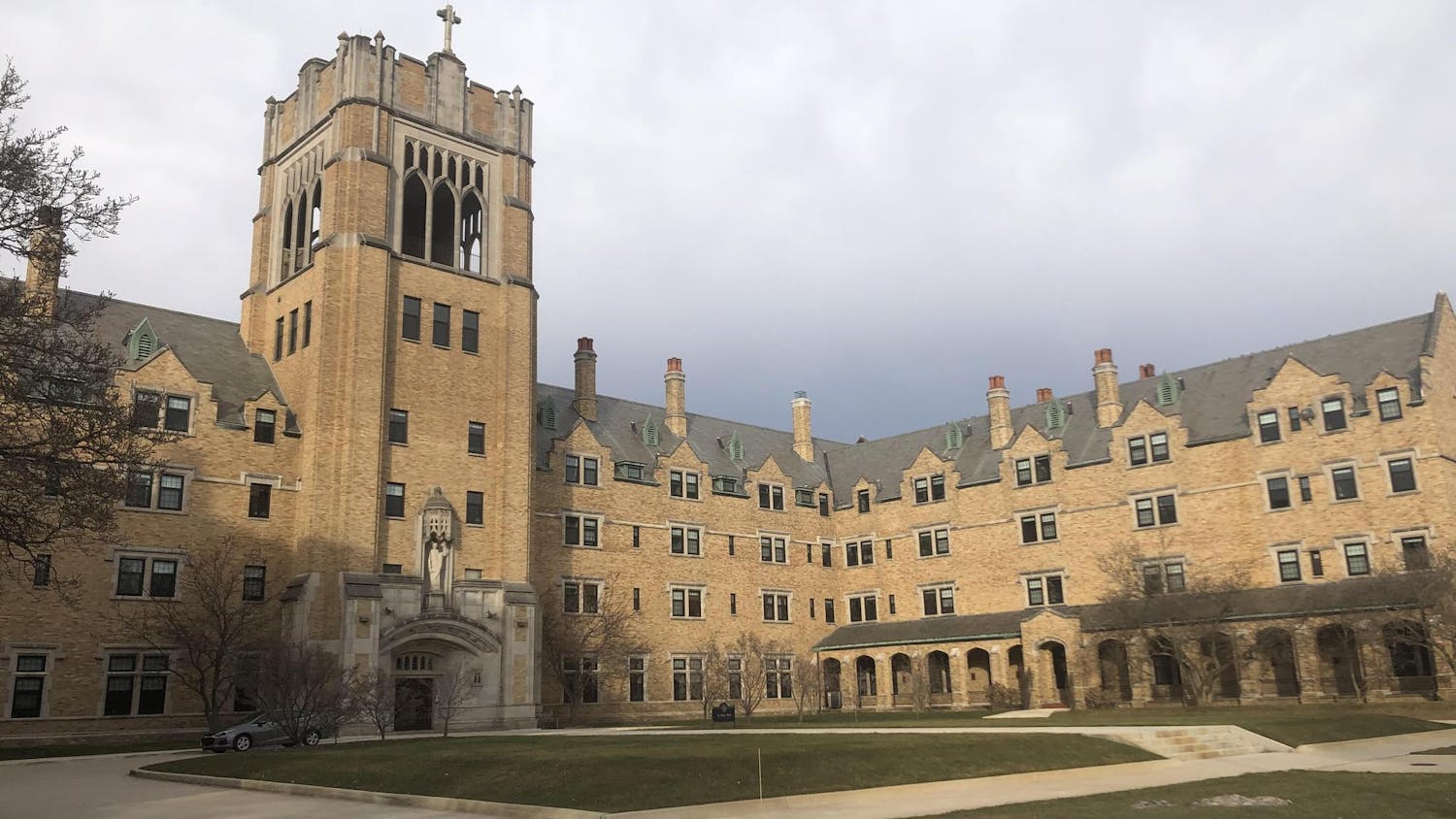The Mendoza College of Business hosted Freedom House research director Sarah Cook for a lecture about disinformation in China Friday. This lecture was part of the Ten Years Hence webinar series that began in 2002 to explore issues and ideas that were likely to affect the world over the next decade.
Cook’s lecture, “Disinformation, China, and Beijing’s Broader Global Media Influence” covered China’s increasingly authoritarian government, its role in citizens’ lives and the country’s influence abroad. 
Cook began her lecture by tracing the openness of China in the last decade. Since 2010 China has become more authoritarian, especially in its political freedoms and civil liberties, Cook said.
“The Chinese Communist Party (CCP), the ruler of China, has gotten more authoritarian. It’s gotten more repressive, the targets of repression have intensified, the tactics of repression have intensified,” Cook said. “What’s on the wrong side of the red line has expanded quite dramatically, especially since around 2008 but accelerated in 2012 particularly under the leadership of Xi Jinping.”
In 2012, Freedom House, a non-profit organization that conducts research and advocacy on democracy, political freedom and human rights, rated China’s political rights and civil liberties a 17 out of 100 and labeled the country in the “not-free” category. Today, China receives a score of nine, almost half of what it was a decade ago.
China state-linked actors increasingly engage in media propaganda by using fake accounts to spread disinformation, Cook said. She also said that disinformation campaigns took off in China during the Taiwan election around 2017 and 2018.
“There were examples related to U.S. elections,” Cook said of China’s misinformation campaigns. “There have been examples of [disinformation] campaigns related to the Philippines. There was another effort surrounding the January elections in Taiwan, but the Taiwanese government and civil society and technology companies were much better prepared to respond this time so they were actually able to deflect it and it had very little impact on the election itself.”
Cook also said China’s media propaganda is shifting from trying to make the CCP look good to sowing divisiveness in other countries and societies. In response, other countries are spreading awareness about the disinformation social media campaigns, she said.
“What’s been amazing in terms of the response is the greater awareness of this,” Cook said. “So much of the information and the examples I was able to give you was because technology companies, civil society groups, cyber security networks and research institutions are detecting this activity, downloading all this data and analyzing it in a way that helps shed light on what’s going on.”
Cook said that there has been an awakening by governments and by civil society to the dangerous threat disinformation campaigns pose not only to media freedom and media regulation but also to national sovereignty and legal issues.
At the end of the lecture, Mendoza professor James O’Rourke asked about the goal of China’s disinformation. Cook replied that the disinformation comes from internal nervousness about the external perceptions of China.
“The goal fundamentally does still relate to the CCP’s concerns over its own political survival. The overarching goal is to make the world safe for the Chinese Communist Party,” Cook said. “I think one [reason] is to make the regime look benign and to make China look positive. The second is to suppress criticism and suppress investigative reporting about what is happening internally in China but also in terms of the darker side of their external engagement: corruption, labor rights abuses, censorship.”
This lecture, part of the Ten Years Hence series, was the second to last in the program. The series wraps up April 30 with legal scholar Danielle Citron’s lecture “The End of Privacy: How Intimacy Became Data, and How to Stop It.”
Lecture explores misinformation in China
Courtesy of Luciana Thomas
Professor James O’Rourke and Sarah Cook met over Zoom to discuss increasing misinformation in China.









